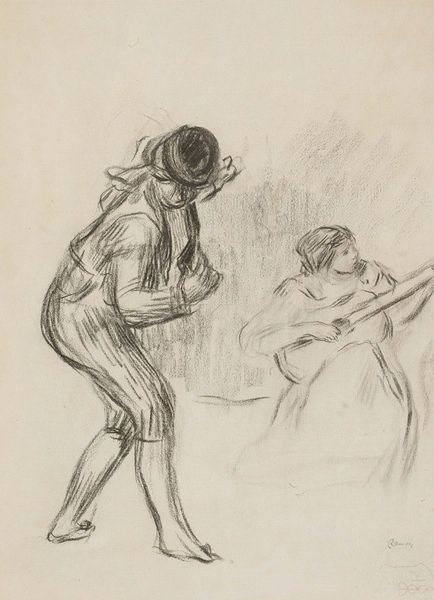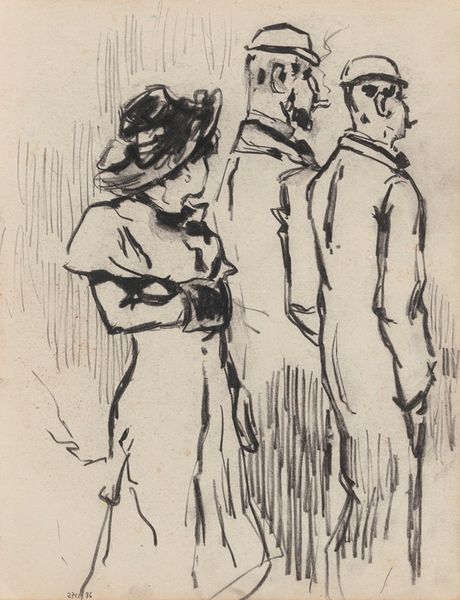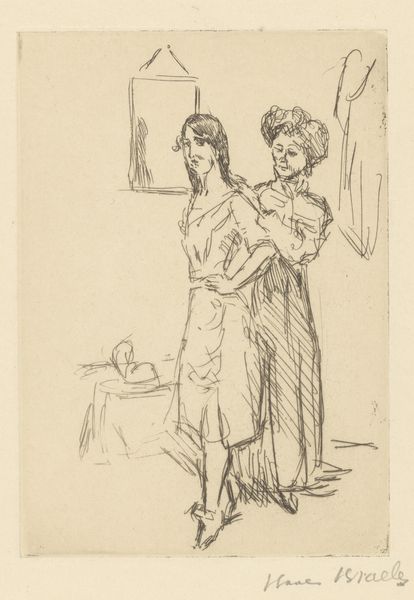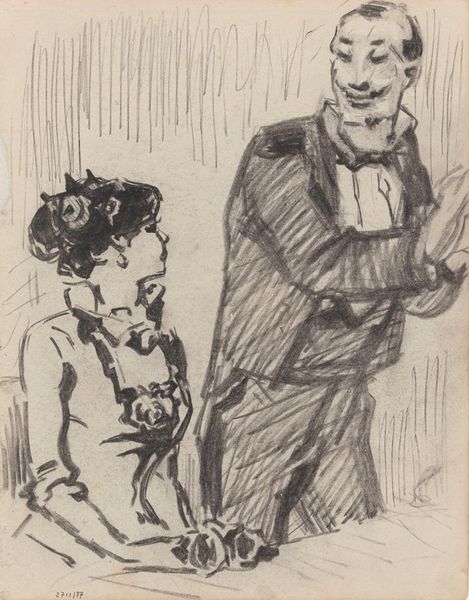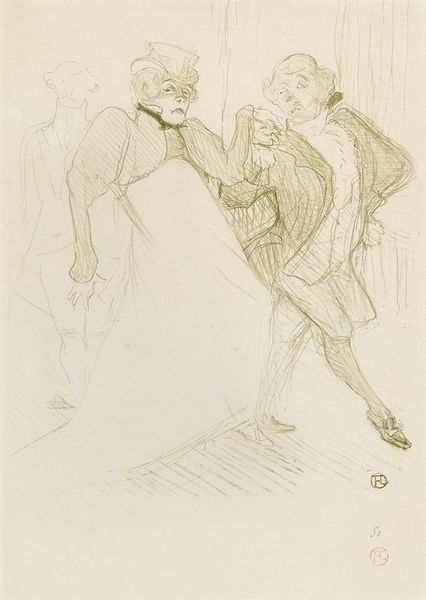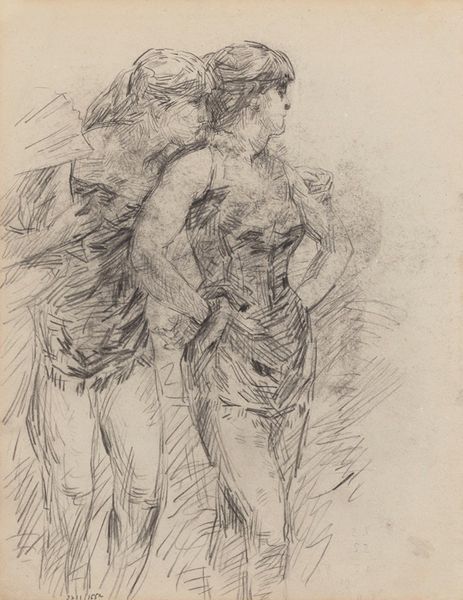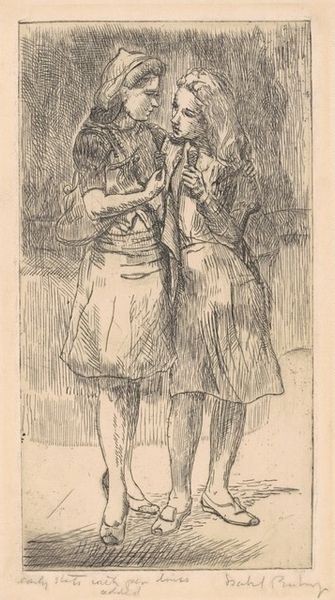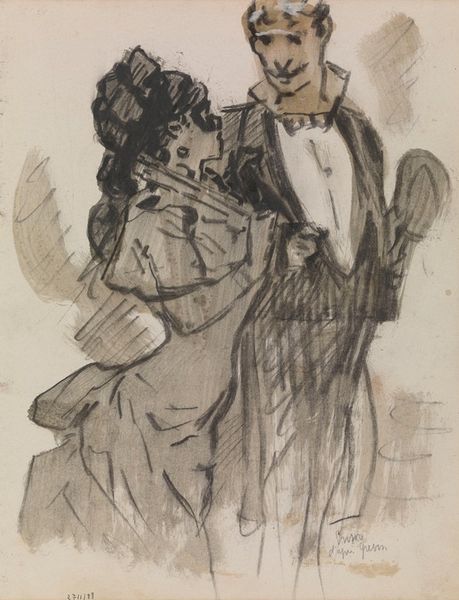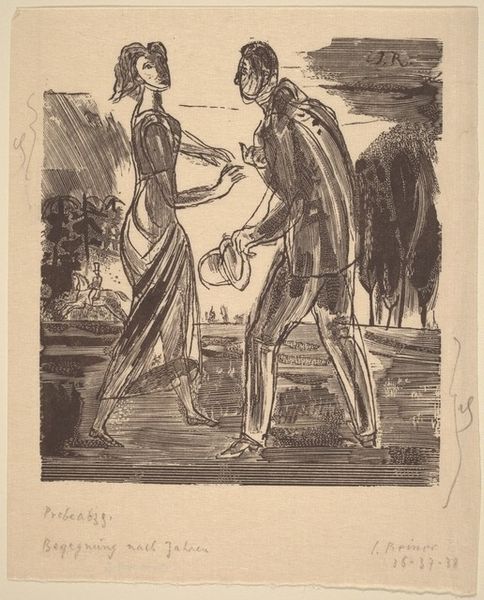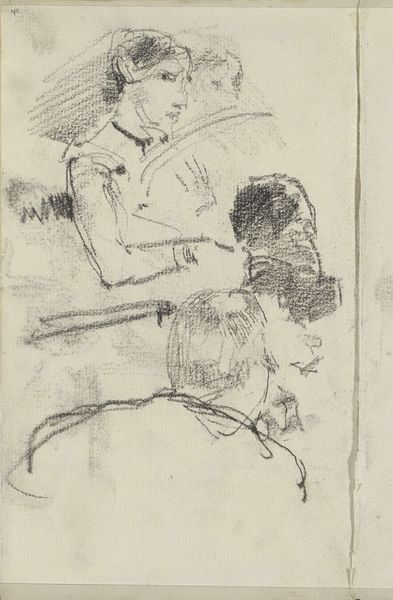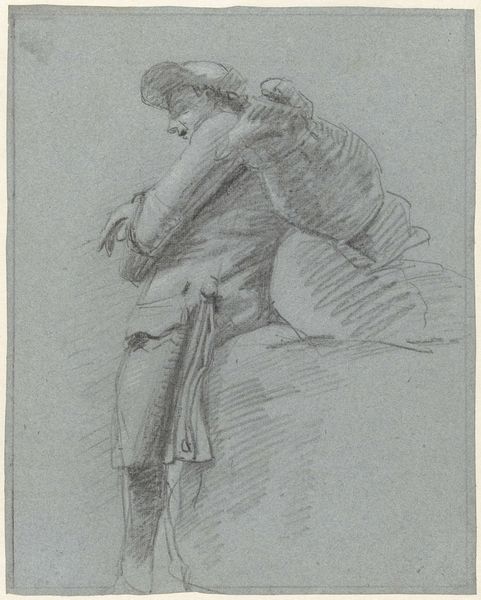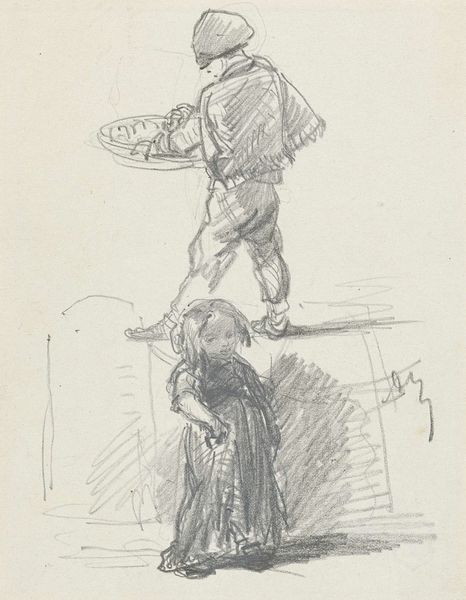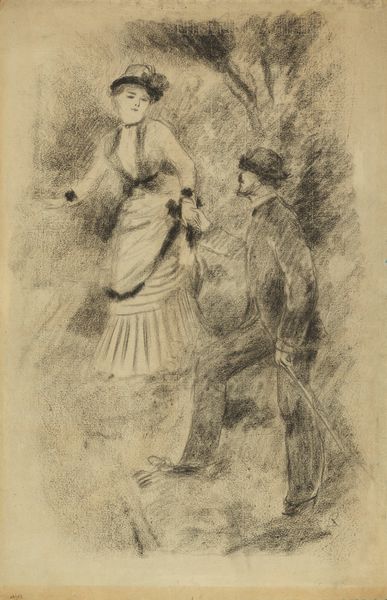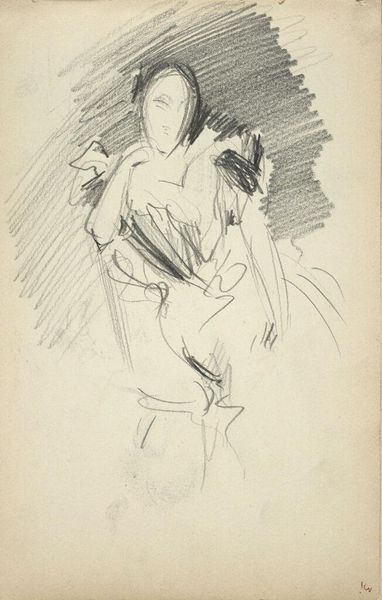
drawing, pencil
#
portrait
#
drawing
#
imaginative character sketch
#
light pencil work
#
impressionism
#
pencil sketch
#
personal sketchbook
#
idea generation sketch
#
ink drawing experimentation
#
pen-ink sketch
#
pencil
#
sketchbook drawing
#
portrait drawing
#
sketchbook art
Copyright: Public Domain: Artvee
Curator: This pencil drawing, titled "Couple before a Chaise," was created by James Ensor sometime between 1880 and 1886. The figures have an immediacy despite the lack of colour. Editor: Immediately, I’m drawn to the tension. There’s a real sense of disconnection here, isn't there? Curator: Absolutely. We see a woman with her arms crossed, turned away from a man who is preoccupied with lighting a cigarette. Consider Ensor’s social circles at the time; this could be read as a commentary on bourgeois relationships, their strains and unspoken resentments. Editor: The chaise lounge in the background feels less like a site of intimacy and more like an obstacle reinforcing their separation. And it also shows how rigid and oppressive society can be, with its rigid gender roles. Curator: Ensor’s choice of pencil lends a casualness to the scene, almost like a fleeting observation. However, that could be a way to see a form of honesty regarding the dynamics between couples within a relationship. It invites us, as viewers, to consider the visible and invisible pressures and norms around social relationship. Editor: There's a palpable mood, enhanced by the swift, almost impatient, strokes. The cigarette smoke becomes symbolic of their alienation and isolation, perhaps reflecting the emptiness in their interactions and a metaphor for short-lived pleasure over real connection. Curator: Think too, of the institutions that uphold these relationships—the expectations of marriage, the societal pressures to conform. Ensor, with his subtly critical eye, captures this beautifully, offering an image for critique about power and societal influence. Editor: And we can definitely read it as a subtle, but clear statement against such restrictions, about women's role and gender constraints, opening dialogue about their experiences and their agency. It makes you question: where’s the equality? Where’s the partnership? Curator: It’s a drawing that prompts us to delve into the historical context, considering how societal structures impact our most personal connections. Editor: And through its apparent simplicity, it reveals a deeper story of interpersonal struggles in gendered relationships and societal influence that stays very relevant still.
Comments
No comments
Be the first to comment and join the conversation on the ultimate creative platform.
